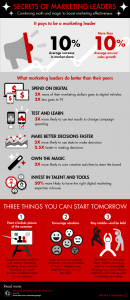Considered as the turf for the old and experienced the 21st corporate world is now changing its notion. And this change is powered by the millennials and their diversified business ideas taking shape in the form of startups.
These startups are not only providing technological solutions to various issues across the globe but they have also affected the career preferences of the modern-day job seekers.
The reason behind this is highly attributed to the dynamic work environment that these new-age corporations incorporate within themselves. Thus, making them the perfect place for learning new methodologies and growing professionally that every employee desires.
Also, the success of a startup depends greatly on its efficiency in the research and development part. And, for achieving this having an engaged and dedicated workforce is a must.
However, one fact that often deters startups from taking up measures to ensure a highly engaged workforce right from the very beginning is the limited cash flow. Here, a major chunk of whatever money is received from investors or is bootstrapped directly goes into the R&D.
Because faster the product gets delivered, the greater are the chances for the startup to stay ahead in the game and generate more profit.
And again amidst this rat race of success, the need for employee wellbeing measures often goes unchecked which further leads to bigger issues like employee disengagement, workplace burnout, employee attrition and more.
Why Startups must take employee engagement seriously?
Startups already have a lot to deal with but challenges related to their workforce shouldn’t be on their list.
Employees are the most important assets of any organisation be it large or small or an emerging startup. It is the efforts of the employees upon which the success of an organisation depends.
And having said so, it becomes really important for those running the show in their respective organisations to keep the workforce engaged.
Especially for startups, having an engaged workforce matters a lot as it throttles the operational capability and maximizes the output rate which every entrepreneur desires to achieve.
However, workforce engagement is not something that comes itself. You may think paying hefty salaries to your employees would certainly do the job here but believe me it does not. Employee engagement is very different and for it, one has to apply different methods externally to make sure the employees are happy and satisfied.
Like employee health and wellness, workplace rewards and recognition, perks and benefits etc. are few that count amongst these external methods.
Well, this is where the tricky part begins just like I said earlier how much of the funds are diverted towards product development. After that putting emphasis on the aspect of employee welfare becomes a huge deal for these startups. But, then completely neglecting it only because of lack of fund isn’t also a good idea either.
As the bigger picture here is spending on employee welfare will not only keep your employees engaged and motivated but it will also help your organisation too.
Below are some of the benefits of adopting employee engagement:
1. Productivity
Giving out a handsome salary to your employees will surely motivate them to work harder. Or let’s say it would give them the impression that they need to work hard.
Here, it would only give them the impression to work hard but not motivate them to do the same. However, adopting employee engagement practices are directly aimed at keeping the workforce active and motivated.
These practices like appreciating or rewarding your employees from time to time for their excellent work gives them the gratification and instils the sense that their work is valued. And this ultimately instils the thought of giving the best every time they do something. Thus, enhancing their productivity and as a whole positively affecting the output graph of the organisation.
2. Work Culture
The work culture within an organisation plays a huge role in deciding its success and profitability. And to ensure a nice and healthy work culture it’s very important for employees to feel aligned to their companies goals and aspirations.
Again employee engagement methods come in handy here in nurturing this sense of alignment within the workforce. Employees tend to abide by work ethics when they feel like they belong to their respective workplaces.
And employees feel belonged when they are taken care of and valued by their organisations.
3. Employee Advocacy
Building a strong brand identity is very important for startups to be on the competitive edge. And as a matter of fact, there’s no one other than the employees working for the brand who would it the best inside out.
Using the employees to be the voice of the organisation and what goes around it is what is called employee advocacy. When employees positively vouch for their respective organisations the trust factor regarding the organisation amongst the others like job-seekers, consumers and potential clients increases.
Also, employees nowadays often share what goes in their workplaces in various social media platforms. Thus, allowing the brand to harness some free exposure from a wide range of audience.
4. Employee Experience
Every employer should thrive to deliver a good employee experience in the workplace.
Why I am saying this is because a good employee experience is directly proportional to better workforce performance. And I’m not alone who agrees with it as Sir Richard Branson also said,
Clients do not come first. Employees come first. If you take care of your employees, they will take care of the clients.
The employee experience starts right from the first day an employee sets his or her inside the organisation. These experiences count in all the events and milestones participated or achieved by an employee during his or her tenure in the organisation. And all of these collectively falls within your employee engagement practices.
Therefore, the more you indulge workplace engagement in your day to day work environment the better your employee experience becomes.
5. Employee Retention
Every organisation desire to employ the best talents for running its operations. However, poor human resource management and malpractices going within the organisation often pushes these employees to look for better alternatives.
One more reason why most employees leave their organisations is the lack of appreciation for their work. Employees like it when their efforts are valued and acknowledged. And going with the same employee rewards and recognition form the backbone of every employee engagement program.
When you add value to the work done by an employee through constant appreciation they tend to reciprocate it by staying diligent and loyal to their job.
Moreover, it also projects a good impression of you as a supportive employer. Thus, helping you retain your best talents in the long run.
Conclusion
These were some of the points which I believe are very crucial for new businesses to work on for achieving long term growth and prosperity.
Engagement programs pave the way for pulling out employees from the toxic trap of demotivation, dissatisfaction and burnout. These programs are industry proven and are playing a big role across various sectors in one way or the other.
Moreover, there are various other cost-effective ways of bringing employee engagement to your workplace.
So if you’re planning to raise a successful startup then my suggestion here would be to first begin with your workforce, engage them to encourage them and when combined them with a robust business plan then the only limit that remains is the limit.
Business & Finance Articles on Business 2 Community
(28)






